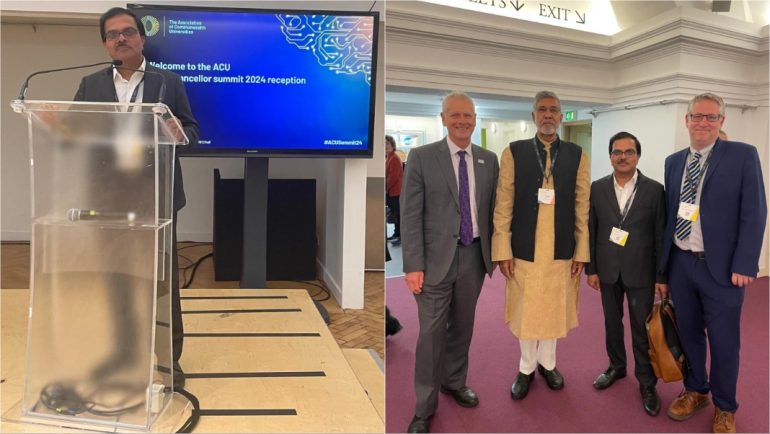- Professor Prabha Sankar Shukla, Vice-Chancellor of NEHU, emphasized AI’s role in preserving cultural heritage at an ACU program in London.
- AI technologies like speech recognition and natural language processing can transcribe and interpret indigenous language recordings, aiding in cultural revitalization.
- AI-driven models enhance cultural tourism apps, refine educational curricula, and support UNESCO projects, promoting cultural diversity appreciation.
- Prof. Shukla highlighted unique geographical indications from northeastern India and the role of AI-enabled virtual classrooms in producer training.
- Inter-university collaboration, exemplified by ACU initiatives, is crucial for fostering cross-border cooperation in cultural preservation.
Main AI News:
In a notable contribution to the program hosted by the Association of Commonwealth Universities (ACU) in London on May 15th, Professor Prabha Sankar Shukla, the Vice-Chancellor of North Eastern Hill University (NEHU), underscored the transformative potential of artificial intelligence (AI) in safeguarding cultural heritage.
Professor Shukla’s discourse centered on elucidating the pivotal role of AI in preserving and promoting geographical indications (GIs) associated with language, arts, and agriculture. He emphasized AI’s capacity as a potent tool for cultural conservation, particularly through innovations like speech recognition and natural language processing. These AI-driven solutions, as outlined by Prof. Shukla, enable the transcription and interpretation of indigenous language recordings, thus facilitating their revitalization through educational applications and electronic dictionaries.
Moreover, Prof. Shukla emphasized the manifold benefits of AI-powered models in bolstering cultural tourism applications, refining educational curricula, and supporting UNESCO initiatives aimed at preserving cultural heritage. By harnessing AI technologies, he asserted, a deeper understanding and appreciation of cultural diversity can be fostered, thereby enriching global discourse on heritage preservation.
In illustrating the distinctive geographical attributes of northeastern India, Prof. Shukla drew attention to GIs such as Muga silk from Assam, Tree Tomato from Nagaland, Khasi Mandarin from Meghalaya, and Naga Chilli. He further expounded on the role of virtual classrooms and online workshops, facilitated by AI, in offering tailored training opportunities for producers to enhance their classroom experiences.
Throughout the event, Prof. Shukla underscored the importance of inter-university collaboration, commending ACU initiatives such as the Commonwealth Climate Resilience Network and the Commonwealth Sustainable Cities Network for their contributions to fostering cross-border cooperation.
In conclusion, Prof. Shukla reaffirmed ACU’s dedication to advancing higher education through rigorous quality assurance assessments and effective governance mechanisms. The integration of AI into cultural heritage initiatives, he asserted, represents a pivotal step towards ensuring the preservation and dissemination of diverse cultural legacies for generations to come.
Conclusion:
Embracing AI in cultural heritage initiatives, as advocated by NEHU’s Vice-Chancellor, presents opportunities for technological innovation and cross-disciplinary collaboration in the market. Businesses involved in AI development, education technology, and cultural tourism stand to benefit from this emphasis on leveraging technology for cultural preservation and promotion. Moreover, the recognition of the importance of inter-university collaboration underscores the potential for partnerships to drive meaningful advancements in this domain.

